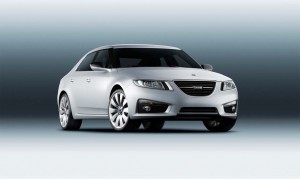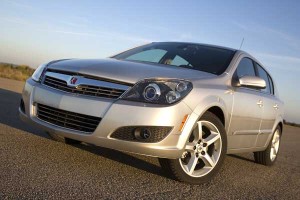General Motors sold or discontinued the Saab and Saturn brands years ago but it said this week it is stepping in to recall about 200,000 vehicles sold by its former brands as part of a wider recall of million of autos with potentially defective air bag inflators made by Takata Corp.
A total of 180,000 of the Saab and Saturn vehicles were sold in the United States and another 20,000 in Canada, GM said Tuesday.
The announcement comes just days after Volkswagen recalled 800,000 vehicles due to the latest Takata problem. In all, six automakers have been impacted by the widening problem. Before the latest series of service actions, nearly 20 million vehicles using the Japanese suppliers airbag inflators had been affected.
At least 11 people have been killed as a result of a defect that can cause metal and plastic shrapnel to spew into the passenger compartment. More than 130 injuries have also been reported. All but one of the deaths occurred in vehicles built by the Honda Motor Co., one of Takata’s biggest customers.
(German supplier Continental has its own airbag problems. For more, Click Here.)
The GM models covered by the latest recall include the Saab 9-3 from model years 2003 to 2011, the Saab 9-5 from the 2010 and 2011 model years, as well as the Saturn Astra from the 2008 and 2009 model years, GM said.
These vehicles have Takata PSDI-5 front driver-side air bag inflators, which have been blamed for all 11 deaths. GM said no injuries, deaths or inadvertent ruptures of airbags have been reported in the recalled Saab and Saturn vehicles.
Last month, Mark Rosekind, head of the National Highway Traffic Safety Administration revealed that the Takata airbag was expected to expand significantly. Not only GM and Volkswagen, but Honda, BMW, Daimler AG — the maker of Mercedes-Benz vehicles — Volkswagen and Kia have been asked to recall more than 2.4 million vehicles equipped with the potentially defective inflators. None of the Kia products were sold in the U.S.
(Daimler recalls over 800,000 vehicles due to Takata issue. Click Here for more.)
Takata acknowledged last month that more than 5 million inflators were potentially defective and that those vehicles should be recalled. Many vehicles use more than one of the suspect PSDI-5 inflators.
There is an ongoing debate over the cause of the problem. Initially, Takata focused on two North American plants, blaming the problem on manufacturing defects that would only cause a problem in vehicles used in areas with high humidity, such as Florida or Puerto Rico. Some recent incidents have occurred in drier climes, however, and there is growing suspicion the issue centers around the basic chemical, ammonium nitrate, used in the inflators.
One of the big questions is whether Takata’s managers knew of the problem early on and chose to ignore it. However, Takata’s top executive resigned under pressure recently and investigations in the company’s conduct are continuing not only in the U.S. but also in Japan and Europe.
Meanwhile, Honda, which had counted Takata as a favored member of its network of suppliers has effectively disowned the air bag supplier after it put a serious dent in Honda’s reputation for building quality vehicles. Several other automakers, including Toyota, have also switched to other airbag suppliers in recent months.
(New airbag, diesel documents could cause more trouble for VW. Click Here for the story.)


